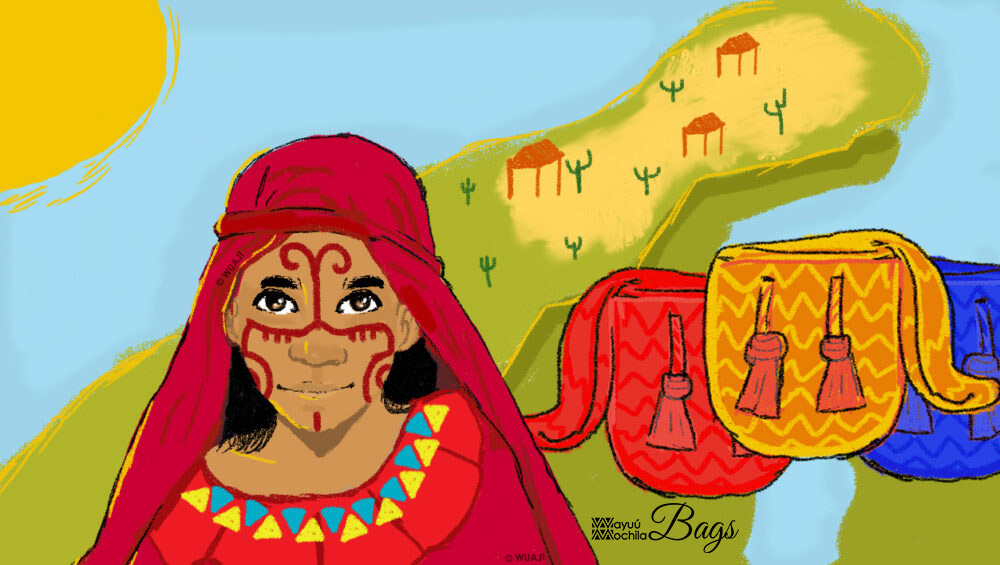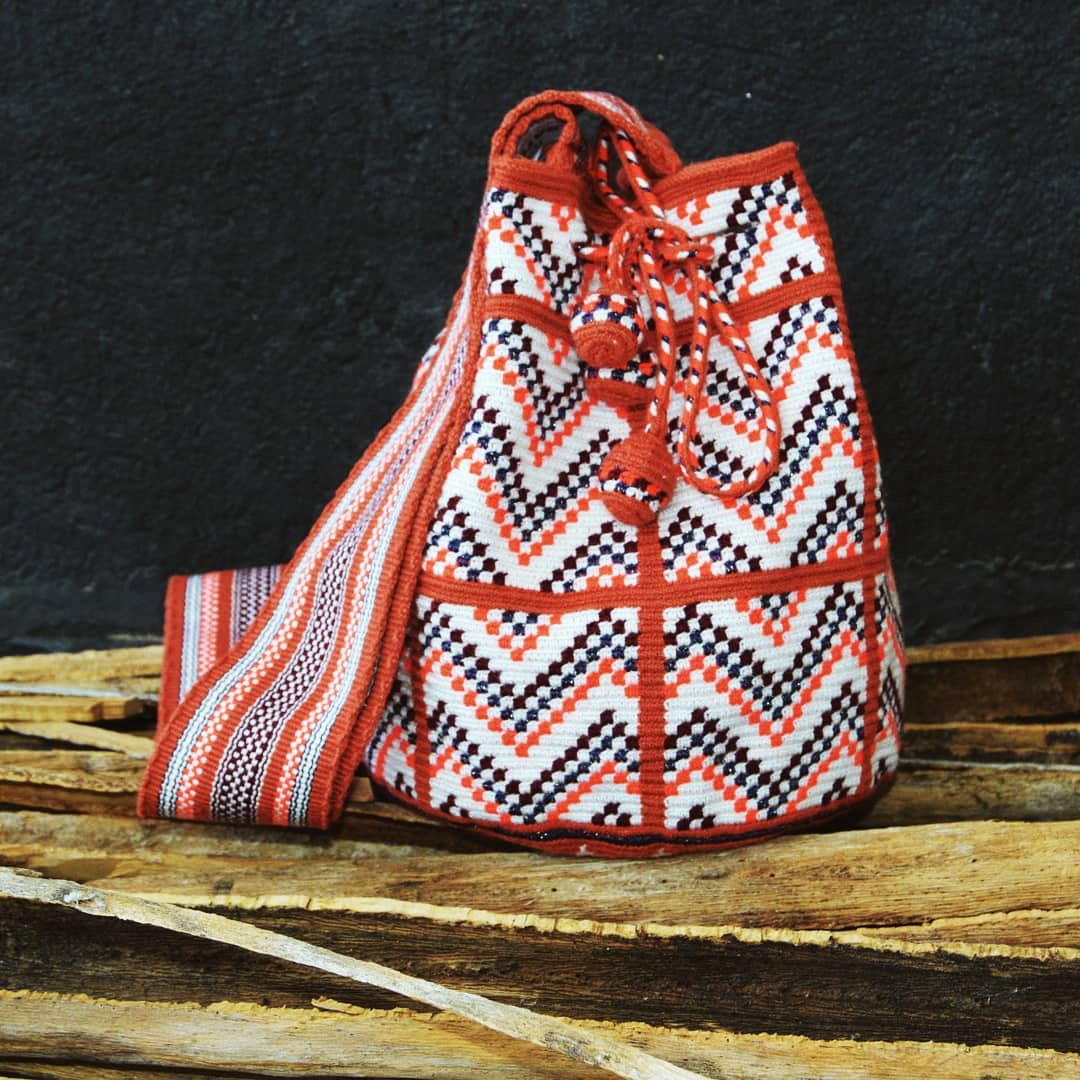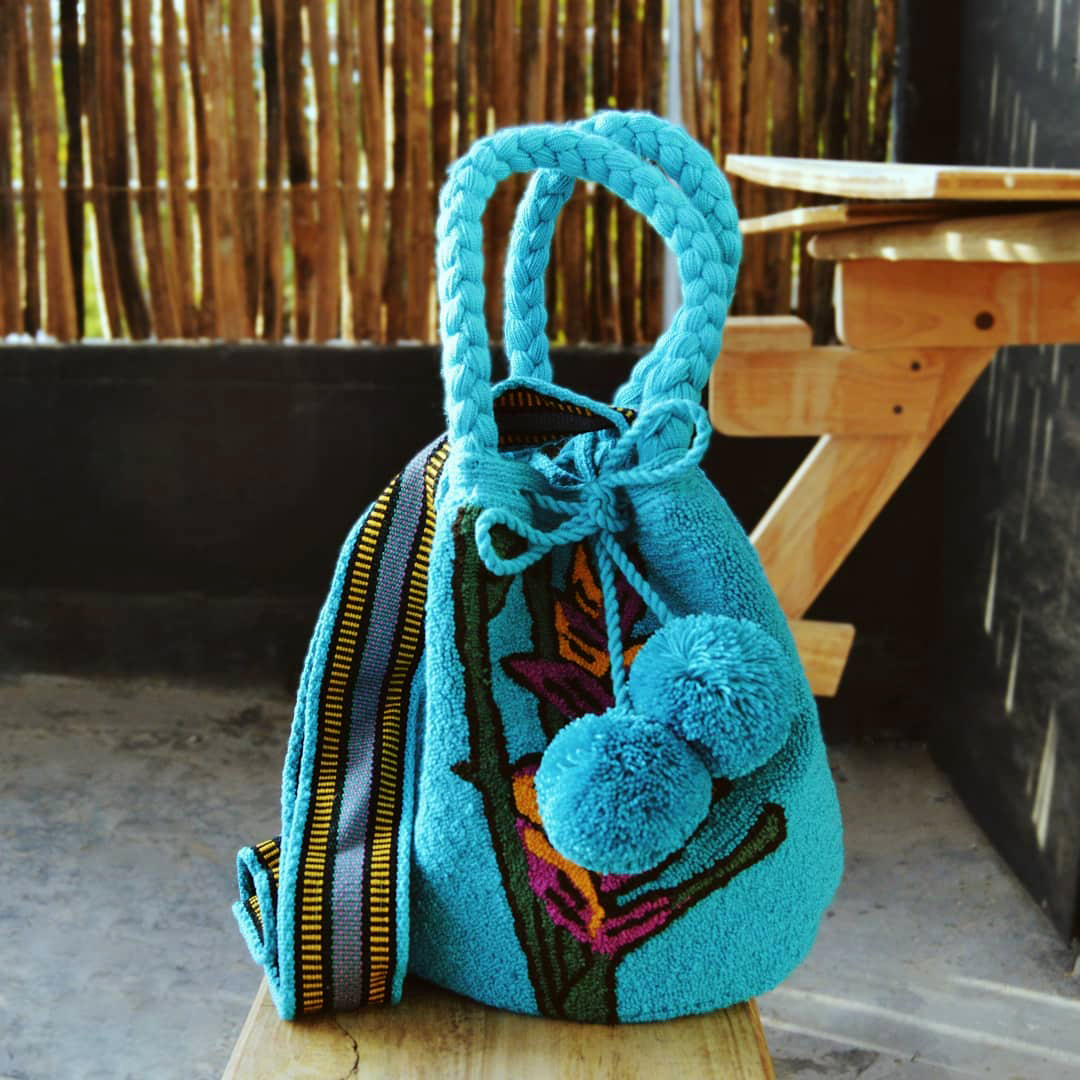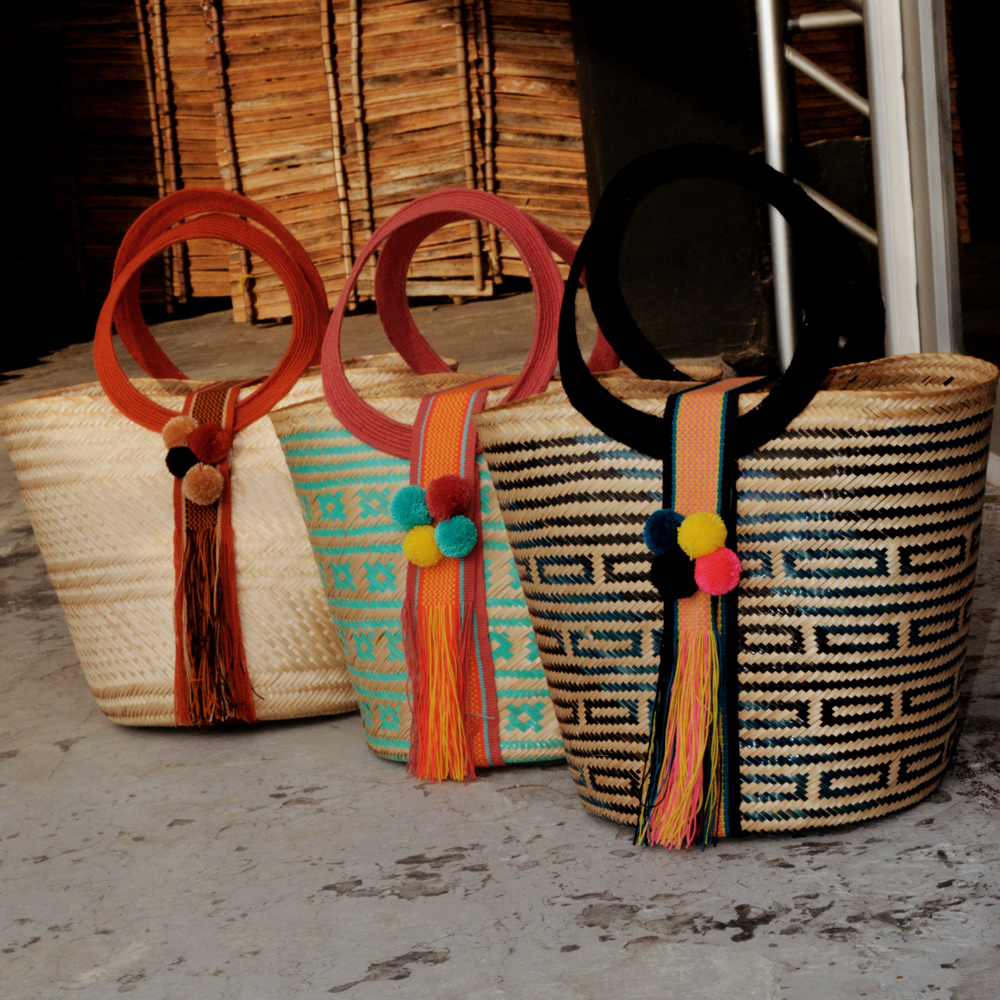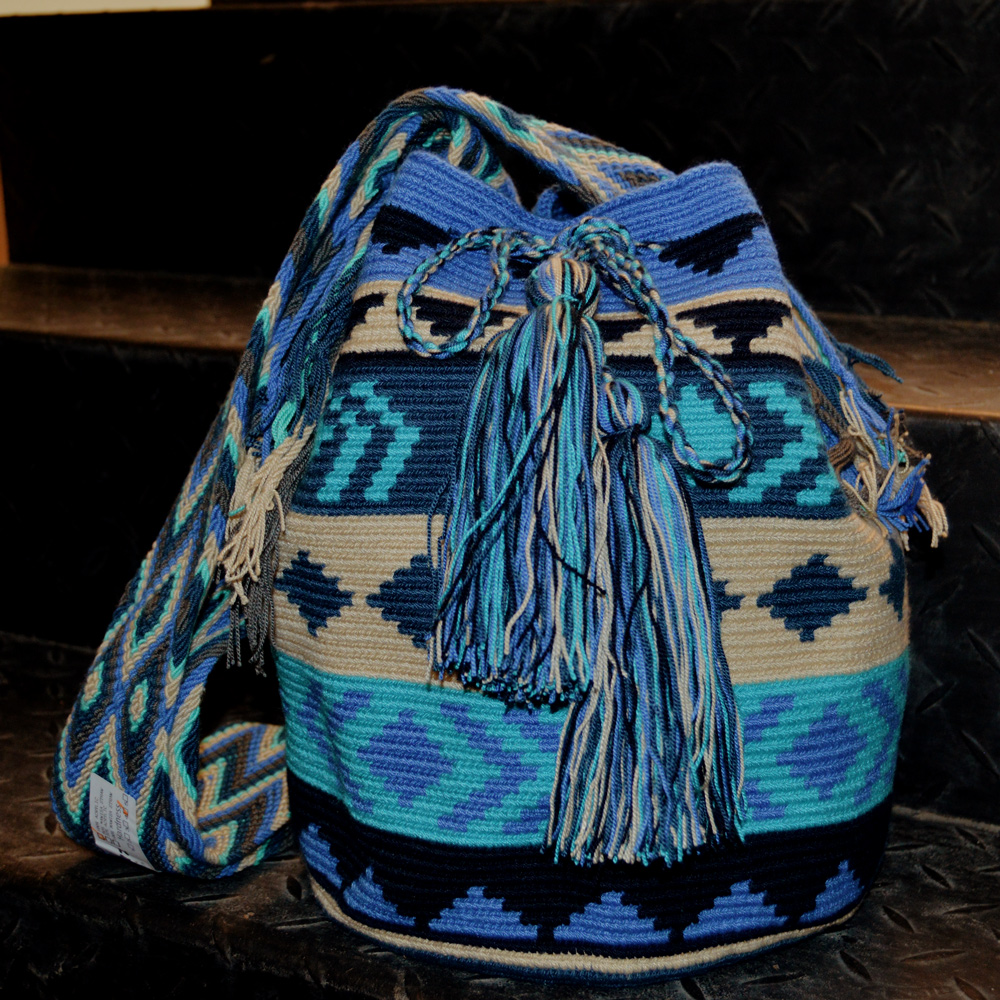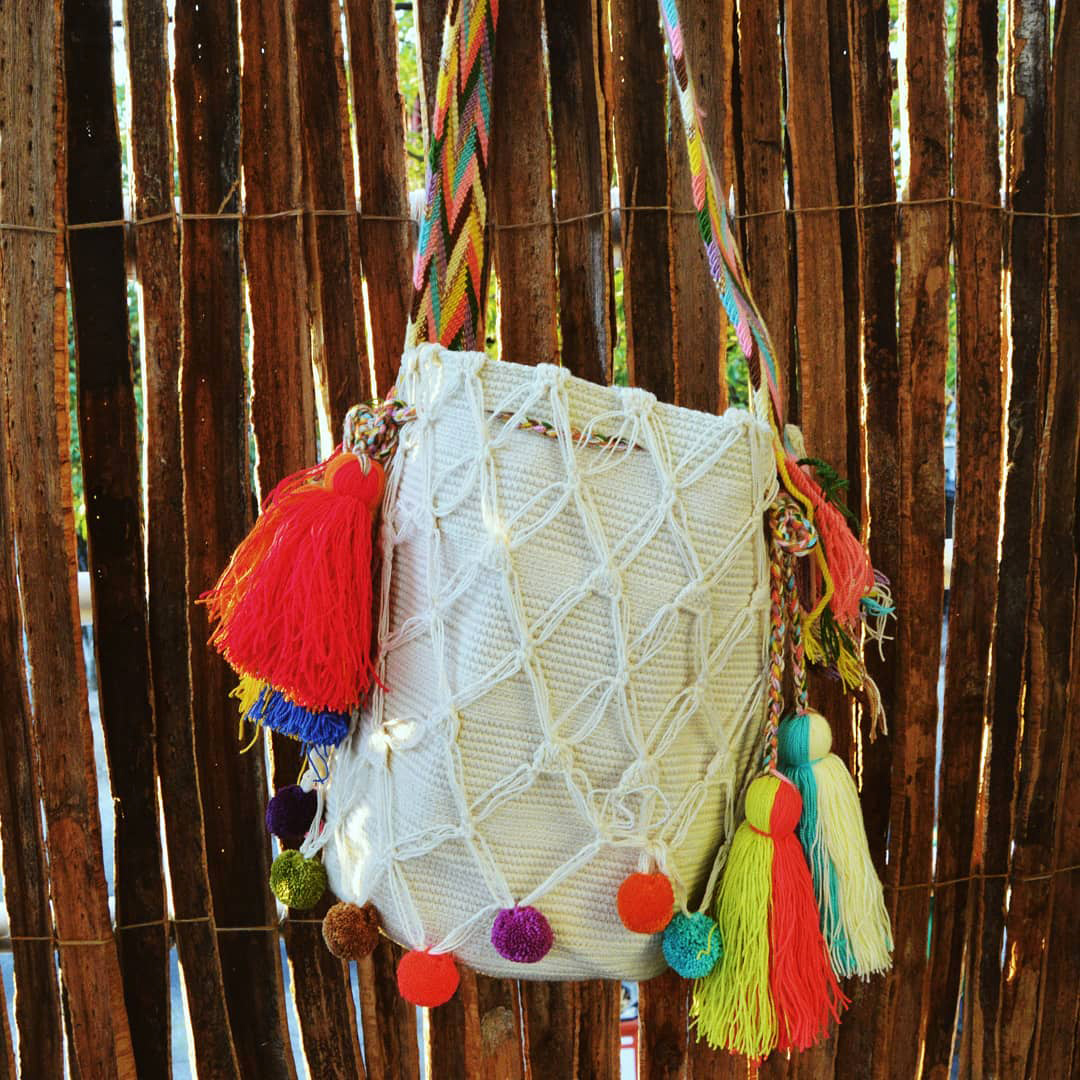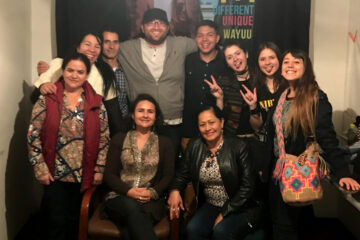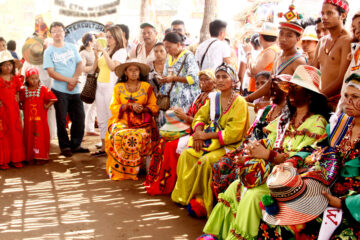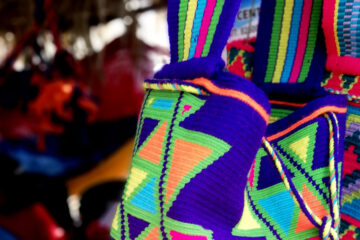Who are the Wayuu?
The Wayuu artisan people are the largest indigenous manufacturing community of the Americas. Most tribesmen and women reside along the northern territory of Colombia and Venezuela. In addition The official authorities report over 270.000 people belonging to the indigenous group living in Colombia alone.
The Wayuu are descendants of the Caribs and Arawaks, largely known for their strong weaving tradition. Thus the Wayuu carry on this traditional weaving from their ancestors today. Therefore weaving and crocheting make part of their daily life.
Most of the women presently weave or will do it at some point through their lifetime. The men participate in the industry as well; they make the straps, provide the materials, and transport the goods to the city centers. The most important, the tribe produces millions of high-quality artisan products every year. This artisan weaving industry plays a vital role in the local economy, specifically, the mochila.
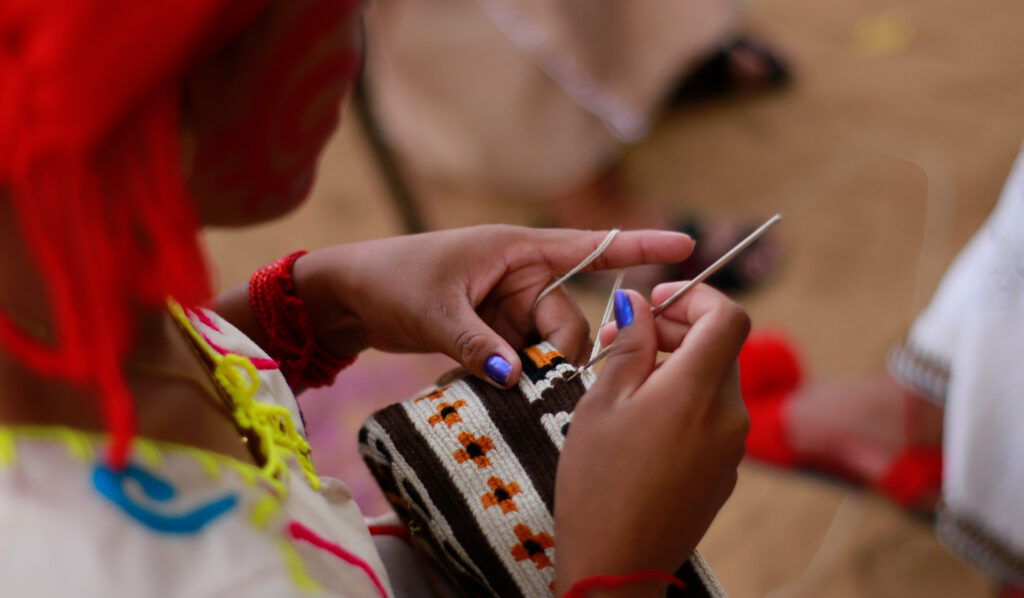
Most popular Wayuu Artisan Products
Wayuu women weave as part of their daily living; they simultaneously employ a variety of techniques including crocheting to make different Wayuu products.
One can say that the most significant product is the Woven Hammock, especially large, soft, beautifully adorned with crochet lace. Wayuu families sleep and spend their afternoon in these colorful beauties.
The Wayuu Mochila Bag is the second most significant, but most popular selling product. The Wayuu produce two types of Mochila bags: commercial and traditional. The different traditional types have served a pivotal role in the development of their culture and productivity while the “Fashion Bags” have provided monetary means and the development of microbusinesses.
There are many other products like keychains, sandals, clothes, hats, traditional shoes or “Guaireñas,” Jewelry, bracelets, and household decoratives like pillowcases and wall rugs.
How does the Wayuu artisan industry work?
Generally, artisans handcraft Wayuu goods deep into the rancherias and bring them to the city centers. Other locals finish, alter, or otherwise commercialize the items. Most of the time they sell Wayuu products by pieces to assemble.
Locally, Wayuu bags end up being sold by some women and men of the tribe. They walk around in the populated city centers and travel destinations, selling them in the markets and to bystanders. From this point, the products travel all over Colombia.
Internationally, mochilas are sold by second-hand merchants through websites and social media platforms like Instagram and Facebook. A couple of years ago, the market for the Wayuu bag was thriving.
The problems in the Wayuu Artisan Industry
On one hand, some groups manage to organize their means of commercialization. Some other groups, however, lack the access to marketing technology and knowledge and have to sell their crafts for cheap.
One large factor that contributes to the problem is transportation. The tribe lives in rural communities that still struggle to get their products to the city centers to sell. Another issue the Wayuu face is that people continue to disregard handmade goods. We can see as well that technology has brought other new opportunities for people to take advantage of them.
As technology made these products more accessible, more people saw the possibility of selling mochilas through marketplaces like eBay, Shopify, and Amazon, flooding the market and lowering the price of the bag.
Now many stores around the world commercialize Wayuu products. Although this may seem like a positive outcome for the Wayuu people, most of the times, this mass marketization leaves the people of the tribe holding the short end of the sick. Many of these resellers do not pay taxes and give nothing back to the artisan community.

The Social Media Problem
With the rise of social media “Instagram Stores” came the rise of Wayuu Mochila Bags stores. There are some good people of course, and even Rancherias are able to come up with such stores. But Instagram allows for fraud by both sellers and buyers. On countless occasions, the fraudulent transactions leave people trying to buy the product unmotivated. The lack of knowledge from sellers and buyers hinders the industry standards as well.
While many merchants actively participate in the betterment of the communities, others acquire the product without any regards for the artisans and their culture.

The Wayuu want to be heard
Many Wayuu women also express their discontent for people that, willingly and without their consent, alter their artisan products. Wayuu weavings represent more than just a fashion item for the people of the tribe. The Wayuu, millenary weavers, tell you their story through the patterns they make.
This rich and involved weaving history is commonly overlooked. Several companies opt to create fashion lines with their imposed designs to be replicated. While many might think these companies help, some problems arise from this.
First, the model goes completely against Wayuu ideology. Second, each bag is unique, and it should represent the worldview of the weaver. Lastly, weavers do not receive more substantial compensation for their reproduced designs even though these fashion websites sell the mochila bags at 3 or 4 times the regular price.
Each bag is made handcrafted using the weaving knowledge of hundreds of years of dedicated artisans and represents the history and culture of its makers. Fashion companies oversimplify the mochila patterns, employing highly skilled weavers from the region and imposing these patterns on them. As a result, the “Master Artisans” then do not develop new more intricate patterns or teach the community.
What can we do?
Summing up, the Wayuu want to be participants in the exchange and design of their products, and not all of them feel negative about what happens to the industry.
- Provide channels for the artisans to voice their opinions.
- Listen and treat the products and people involved with respect.
- Be fair and empathetic.
We have created a platform, an Artisan Marketplace for the Wayuu artisans and local merchants to sell their Wayuu products…
What is very important to remember is that the Wayuu Artisan Industry feeds many local and international households and we are all participants!

